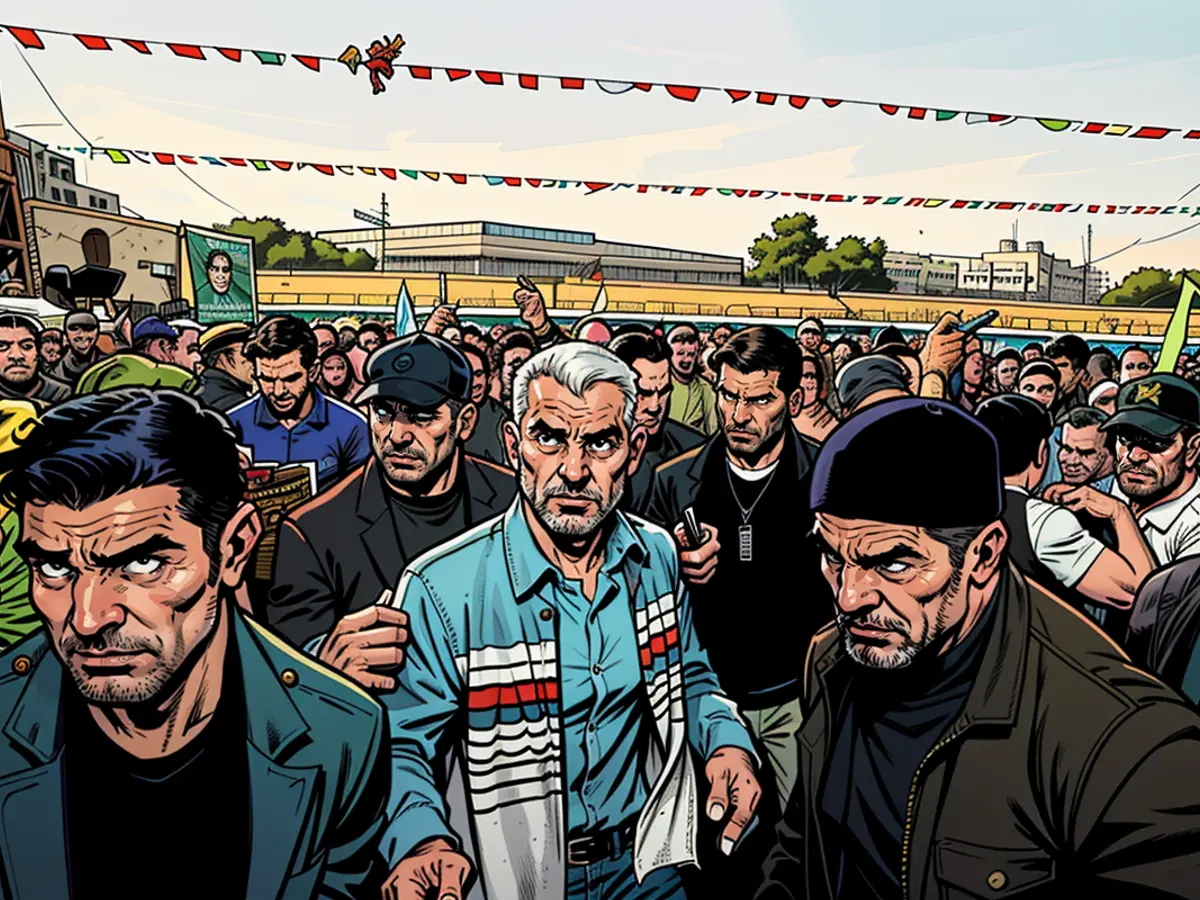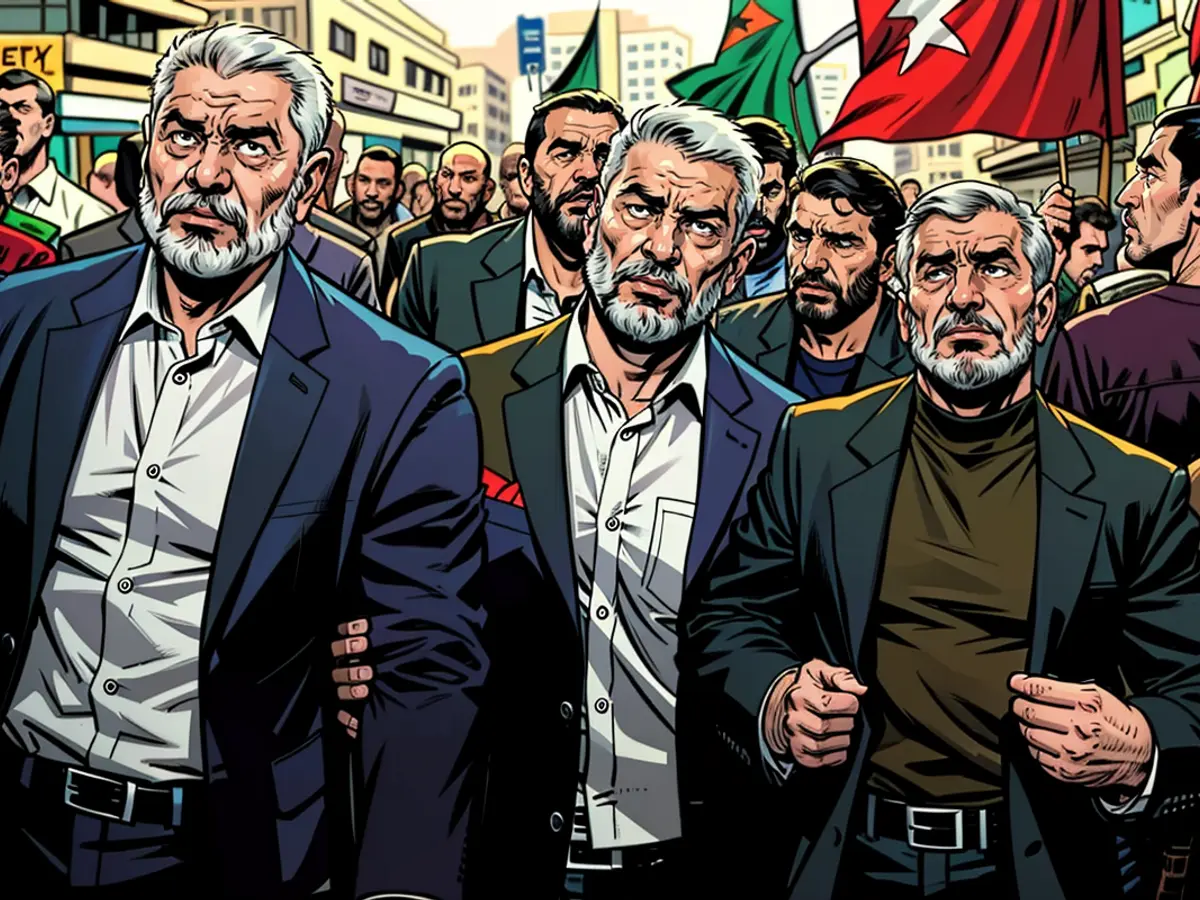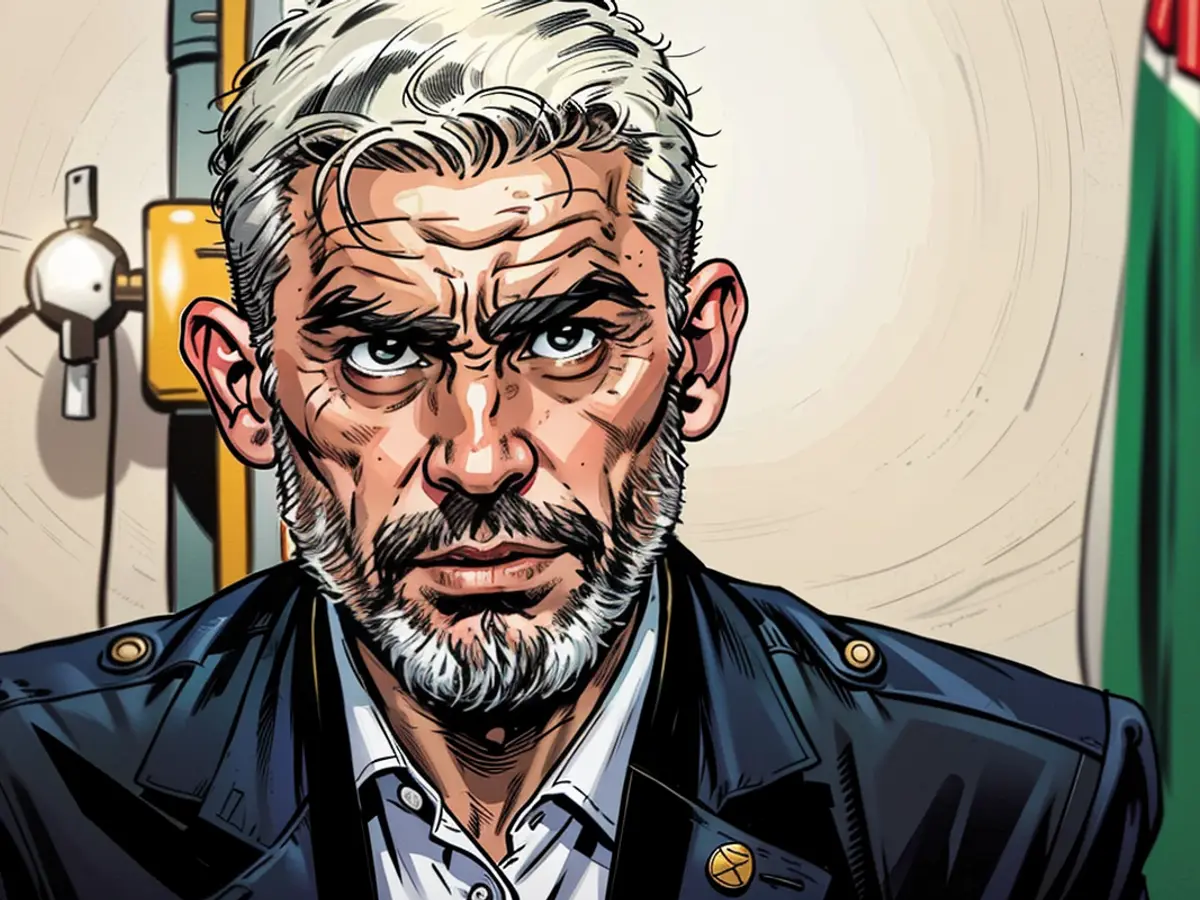Hamas's top figure, Yahya Sinwar, held a prominent position.
Sinwar was a significant focus of Israel's battle against Hamas in Gaza, and Israeli authorities tagged him with several titles, such as the "embodiment of evil" and the "butcher of Khan Younis." Following the October 2023 attacks, he was hardly spotted publically, potentially enduring Israel's year-long siege of Gaza by holing up in an extensive network of subterranean tunnels.
In August, Sinwar rose through the ranks of Hamas to become one of its highest-ranking officials after his predecessor, Ismail Haniyeh, was killed in Tehran.
However, his prominent role within Hamas was not recent. Sinwar joined the militant group in the late 1980s, swiftly advancing in its ranks. He established Hamas' feared international intelligence and security branch, the Majd, and was infamous for utilizing excessive violence against anyone suspected of working with the Israelis. In 2017, Hamas elected Sinwar as the political chief of its principal decision-making body, the Politburo, in Gaza.
Sinwar was born in a refugee camp in Khan Younis, Gaza, in 1962. His family had originated from the Palestinian village of Al-Majdal, now known as Ashkelon, which they had to leave during the Arab-Israeli conflict.
Sinwar attended the Islamic University in Gaza in the early 1980s, where he took Arabic classes, was an active member of Palestinian nationalist student organizations, and was arrested for his involvement in anti-occupation activism. Before Hamas was formed, he helped construct the Majd, a network of Islamist youths who exposed Palestinian informants working for Israel. Later, this group was integrated into Hamas' security apparatus under the same name.
Sinwar was handed four life sentences by Israel in 1988, accused of organizing the killings of two Israeli soldiers and four Palestinians suspected of collaborating with Israel.
While in prison, he allegedly mistreated fellow inmates, punishing those suspected of being informants and intimidating others into beginning hunger strikes.
Sinwar claimed that he used his time in prison to study his adversaries, even mastering the ability to read and speak Hebrew through distance learning.
In 2011, he was released during a prisoner exchange that included more than 1,000 Palestinian prisoners in exchange for Gilad Shalit, an Israeli soldier who had been held captive in Gaza for five years.
At the time of his release, Sinwar praised the exchange, calling it "one of the key milestones in the history of our movement." Sinwar's release was rumored to be due to his brother's participation in Shalit's kidnapping, who demanded Sinwar's inclusion in the swap deal.
Upon being liberated, Sinwar returned to Gaza, where he began his ascent within the militant organization, gaining notoriety for the brutal treatment he inflicted on suspected collaborators.
Some perceived Sinwar as a radical fundamentalist, while others viewed him as a strategic mastermind.
Fifteen years into his conviction, he used his Hebrew skills to persuade the Israeli public to back a truce with Hamas in an interview with an Israeli broadcasting station. "We will not acknowledge Israel, but we are ready for an extended truce with Israel that would bring stability and prosperity to the region," he said.
In a rare interview with an Italian journalist in 2018, Sinwar hinted at the political solution Hamas was contemplating, stating, "A new war serves no one's interest."

He also acknowledged the tough situation he and his fellow Gazans were facing under Israel's blockade, drawing upon his own experiences in Israeli imprisonment. "I haven't left – I've only changed prisons," he said, referring to life in Gaza.
In 2018, during Sinwar's leadership, Hamas spearheaded its "Return March" campaign, which involved weekly protests near the Israeli border, demanding that Israel lift its blockade and allow Palestinians to reclaim their historic villages and towns. These demonstrations attracted international attention and support from human rights groups. During one of the protests, Sinwar praised those confronting "the enemy that encircles us."
As the group's political leader, Sinwar focused on its foreign relationships, cultivating critical ties with regional Arab powers.
He was responsible for reestablishing Hamas' relationship with Egyptian leaders who were hesitant about the group's support for political Islam, and for securing continued military funding from Iran, as reported by the European Council on Foreign Relations (ECFR).
Israel has publicly accused Sinwar of masterminding Hamas' October 7 terror attack against Israel. Despite expert assertions that he was likely one of multiple parties involved, he was identified as a primary target of Israel's conflict in Gaza.
This attack ranked as Israel's deadliest strike, with Hamas and other Palestinian armed groups responsible for the deaths of more than 1,200 people, predominantly civilians, and for capturing at least 250 individuals into Gaza.
Dr. Yuval Bitton, a dentist who treated Sinwar in Israel's Nafcha Prison, stated in an interview with CNN in June 2021, that Sinwar was preoccupied with maintaining his power. Bitton suspected that Sinwar would be "willing to sacrifice even 100,000 Palestinians to preserve the longevity of his rule."
"He is ready to sacrifice the lives of militants, Hamas members, civilians. He doesn't care."
Sinwar reportedly played a crucial role in negotiations for the release of the hostages held captive in Gaza during the October 7 attacks. The talks constituted senior figures from Israel, Hamas, the United States, Qatar, and Egypt.
During the conflict, Sinwar strengthened his control over Hamas, ultimately becoming its most significant figure. His power expanded further after the demise of other significant Hamas figures, such as Mohammed al-Masri, famously known as Mohammed Deif, who was the head of the Al-Qassam Brigades, Hamas' military wing, and Deif's second-in-command, Marwan Issa.
In 2015, Sinwar was named a global terrorist by the United States' Department of State and the European Union. More recently, he's faced sanctions from the United Kingdom and France.
CNN's Kareem Khadder, Tim Lister, Abeer Salman, Eyad Kourdi, Tara John, and David Shortell all contributed to the reporting.
In the international arena, Sinwar worked on strengthening Hamas' relationships with regional Arab powers, particularly in reestablishing ties with Egypt's leaders who were cautious about political Islam. Additionally, Hamas continued to receive military funding from Iran, as reported by the European Council on Foreign Relations.
Despite the ongoing conflict in the Middleeast, Sinwar emphasized the need for peace, telling an Italian journalist in 2018 that a new war served no one's interest and expressing his desire to improve the living conditions of Gazans, stating, "I haven't left – I've only changed prisons."








